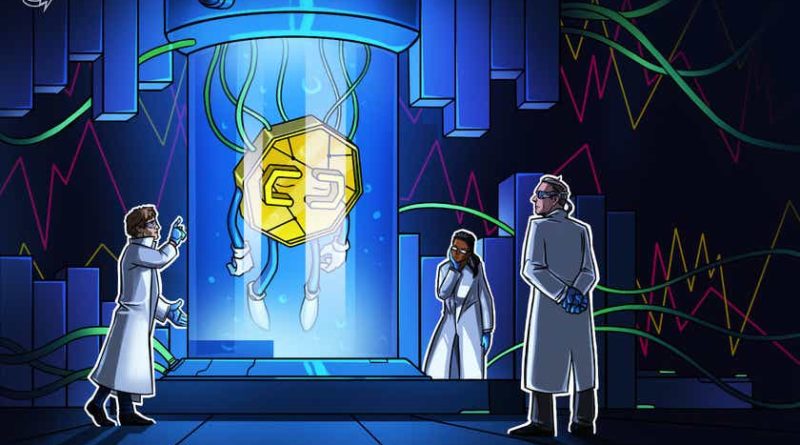Fact or fiction? Did ApeCoin (APE) really drop by 80% since launch?
Data shows vast APE price discrepancies ranging from $8 to $214 at centralized exchanges, but how likely is it that holders successfully traded the top half of that range right after the airdrop?
ApeCoin (APE), the governance token of the well-known Bored Ape Yacht Club (BAYC) NFT project was airdropped to BAYC and Mutant Ape Yacht Club (MAYC) owners at 8.30 am EST on March 17 and only eight hours after APE became tradable in the open market, it has already jumped to the 110th most traded token ranked by CoinGecko, totaling $900 million in trading volume across all tracked platforms.
As one would expect, there were some volatile price movements minutes after the airdrop and headlines show the price of APE dropping 80% since its launch. This raises the question of whether the ordinary BAYC and MAYC owner could have sold APE at $40 instead of $14, which it is trading for at the time of publishing.
Let’s take a look at APE’s price minutes after the airdrop was claimed and the token listed on Binance, FTX, Gate and SushiSwap to assess the scale of the price discrepancies during the initial price discovery periods.

The spot price chart above shows that on the FTX one-minute chart, APE was trading as high as $40 in the second minute but the perpetual price chart below shows that in the first minute, it only went up to as high as $15 at the highest point.

Binance shows a high of $28 on the minute of the airdrop from the one-minute chart while Gate shows an unbelievably high $214 on the same minute.


While the price of newly listed tokens are often volatile during the initial price discovery periods and it is difficult to know if transactions actually happened at these levels, the volumes on these minute candles can give a good indication of what the actual price of APE was right after the airdrop.
The trading volume of Binance is the highest among the three platforms used in this article and the reader should know that APE is also traded on other platforms. In the first five minutes, Binance’s total trading volume was $42 million, whereas FTX perpetual’s trading volume is in total $18 million and the spot volume is $6 million. Gate only has $1,665 trading volume on the candle, which shows the highest price of $214 and only $43,000 total volume in the first five minutes.
So it is clear to see that the more reliable price of APE minutes after the airdrop is from Binance, which is around $28 and happened on the minute of the airdrop. It is not uncommon to see a large drop in price in the newly launched tokens in the early trading hours, as it happened to many similar tokens. The question is whether an ordinary non-tech savvy owner could have sold the token in the first five minutes to avoid such a drop. The answer is almost certainly no.
First, the gas price for minting APE skyrocketed to 10 times (or even more) than the normal price right after the airdrop. Unless one is willing to take great risks bidding up the gas price to get the APE ahead of everyone else (and remember, at this point, the APE price is probably not discoverable anywhere), it is very difficult to even claim APE within one minute.
Second, once APE is in the recipient’s Ethereum wallet, it has to be transferred to centralized exchanges (CEXs) such as Binance and FTX to be sold. This also takes some time, depending on the traffic on the chain at the time. The quickest way would be to use a decentralized exchange (DEX) by simply connecting the Ethereum wallet and swapping APE for another token.
However, one interesting observation is that APE’s liquidity in the DEX is not as much as in the CEX. The TVL at the time of writing on Uniswap is relatively small for APE/USDC and APE/DAI pools, and the liquidity on SushiSwap is very low — the total value locked (TVL) in the APE/USDT pool is only $67,000.


BAYC owners can claim about 10,000 APE per NFT and MAYC owners can claim about 2,000 APE per NFT. This means only 80 BAYC owners will be able to swap the entire airdrop at the price of $28, given the $45 million TVL of APE/USDC on Uniswap.
No BAYC owners can swap the entirety of the airdrop on SushiSwap for USDT since the TVL of $67,000 cannot cover 10,000 APE swaps per BAYC or the 2,000 APE per MAYC at the price of $28.
Given the lack of liquidity in the DEX and the time it takes to transfer APE to a CEX such as Binance, it is almost impossible for an ordinary owner to cash out in the first one to two minutes at the top. It seems only tech-savvy owners (or bots) who know how to interact with the blockchain with code directly can execute these types of transactions in such a short period of time.
Even if the price of $40 is true and APE did drop 80% from there to $8, only very few were able to sell APE at that price. A more reasonable way to look at the initial price of a newly launched token is to use the volume of USD traded within the minute divided by the volume of the token. In the case of Binance in the first minute, the total USDT volume is 19.66 million and the total APE volume is 2.15 million, which gives an average price of $9.14 in the first minute for APE.

Using this fairer way to look at APE’s price immediately after the launch, the token actually only dropped 12% since its peak, which is not overly dramatic, given the current bearish environment. When investors read headlines such as the token price falls 80% on its first day next time, make sure to take it with a grain of salt.
With Yuga Lab’s future plans to use APE for all its products and services, and the collaboration with Animoca Brands to build blockchain NFT games, the future outlook for APE and the Web3 economy built around NFTs could be very interesting.
The views and opinions expressed here are solely those of the author and do not necessarily reflect the views of Cointelegraph.com. Every investment and trading move involves risk, you should conduct your own research when making a decision.




